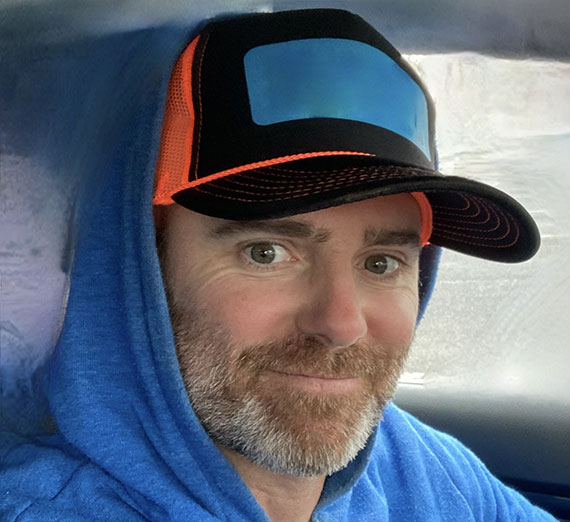West Livaudais’ Spinal Cord Injury Set Him on an Unexpected Path of Service

Spinal cord injury is not for the faint of heart. Nothing can prepare you for it. There is no known cure, and the path forward is fraught with adversity.
West Livaudais (’00) knows this firsthand.
Livaudais suffered a spinal cord injury in 2013 after being hit by a truck while working in Guatemala with Medical Teams International. During that time he was working toward his master’s degree of public health from Oregon Health & Science University, where he learned about health equity and the importance of community to thriving. The adversity he faced after the injury, the lack of community-based resources and support available to him and the general uncoordinated nature of healthcare motivated him to find a solution that would help others living with a spinal cord injury and give them better access to resources and community that help them thrive.
While in recovery, Livaudais finished up his master’s degree and used what he learned to establish the nonprofit Oregon Spinal Cord Injury Connection (OSCI) in 2014.
Though there are other active nonprofits and agencies in Oregon that provide services and resources to the disability community generally, OSCI is the first and only one to focus specifically on spinal cord injury. The nonprofit’s goal is to ensure every Oregonian with a spinal cord injury has the care, community, and resources they need to thrive.
“There is no other organization in the state that is championing the spinal cord injury community the way that we are,” Livaudais says.
OSCI abides by the disability motto, ‘nothing about us without us’. All of its work from strategic planning to program implementation involves members of the SCI community. Specifically, it employs people living with spinal cord injury as community health workers, which is a health professional that is from a specific community experiencing health disparities and who works to connect and serve local community members. The nonprofit recently added three community health workers in Southern Oregon, further extending its reach into rural communities. Currently, OSCI employs 14 people, 11 of whom live with an SCI.
Outside of community work, Livaudais is focusing on raising money and building partnerships to serve the acute needs of newly injured people and their families. The organization also focuses on state-level advocacy, and Livaudais says the team is on the cusp of passing legislation in Oregon that would eliminate Medicaid asset and income eligibility restrictions for employed people with disabilities. This is one way the organization addresses ableism at a system-level, something it strives to do through all of its programs. This proposed legislation (OR SB576) will create equality in the workplace that supports health and prosperity for people with disabilities.
“People with disabilities can and do advocate for themselves, but in the workplace I frequently find that I am the only person with a disability at the tables discussing policy options that would directly affect people with disabilities.”
Livaudais is the founder and executive director of the nonprofit, a role he says he didn’t seek out but performs out of necessity, and from which he learns every day. He describes it as a “necessary evil” as he does the tedious behind-the-scenes work so the nonprofit can function, which requires wearing many hats.
“Gonzaga has served me well in this stage of my life. Nobody anticipates having a spinal cord injury, but the friendships, and the education that I gained at Gonzaga prepared me as well as I could for this kind of experience,” Livaudais says. “Not just to survive a spinal cord injury, but to fold it over and knead it into something that has a multiplying effect for the SCI community in Oregon.”
Livaudais, an Oregon native, graduated from Gonzaga in 2000 with a biology degree. During his time on campus, Livaudais rowed for the men’s crew team and worked closely with Campus Kids. He credits Gonzaga with teaching him to stay true to his values and work ethic, both of which have allowed him to thrive as executive director.
